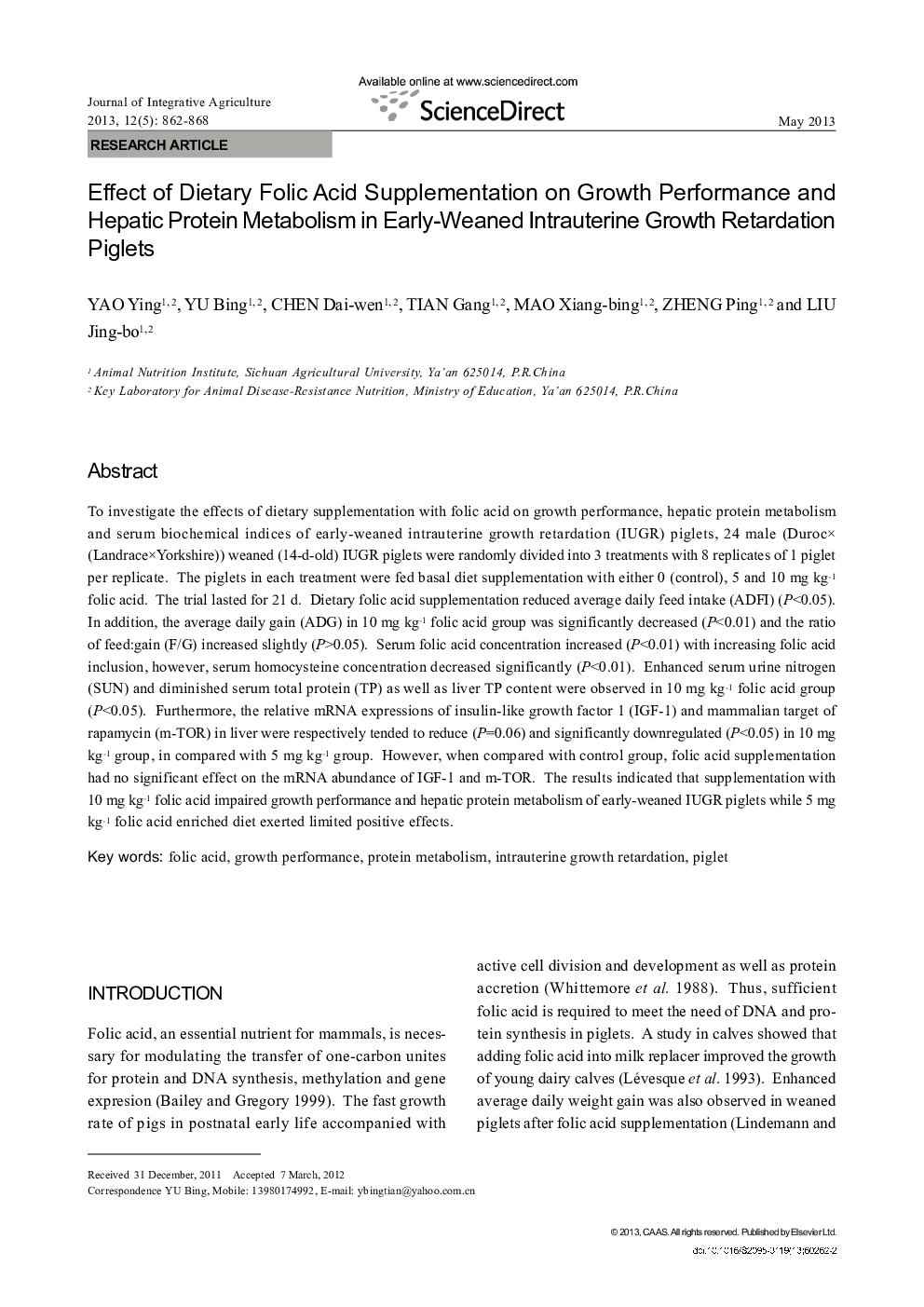| Article ID | Journal | Published Year | Pages | File Type |
|---|---|---|---|---|
| 4494898 | Journal of Integrative Agriculture | 2013 | 7 Pages |
To investigate the effects of dietary supplementation with folic acid on growth performance, hepatic protein metabolism and serum biochemical indices of early-weaned intrauterine growth retardation (IUGR) piglets, 24 male (Duroc×(Landrace×Yorkshire)) weaned (14-d-old) IUGR piglets were randomly divided into 3 treatments with 8 replicates of 1 piglet per replicate. The piglets in each treatment were fed basal diet supplementation with either 0 (control), 5 and 10 mg kg−1folic acid. The trial lasted for 21 d. Dietary folic acid supplementation reduced average daily feed intake (ADFI) (P<0.05). In addition, the average daily gain (ADG) in 10 mg kg−1 folic acid group was significantly decreased (P<0.01) and the ratio of feed:gain (F/G) increased slightly (P>0.05). Serum folic acid concentration increased (P<0.01) with increasing folic acid inclusion, however, serum homocysteine concentration decreased significantly (P>0.01). Enhanced serum urine nitrogen (SUN) and diminished serum total protein (TP) as well as liver TP content were observed in 10 mg kg−1 folic acid group (P<0.05). Furthermore, the relative mRNA expressions of insulin-like growth factor 1 (IGF-1) and mammalian target of rapamycin (m-TOR) in liver were respectively tended to reduce (P=0.06) and significantly downregulated (P<0.05) in 10 mg kg−1 group, in compared with 5 mg kg−1 group. However, when compared with control group, folic acid supplementation had no significant effect on the mRNA abundance of IGF-1 and m-TOR. The results indicated that supplementation with 10 mg kg−1 folic acid impaired growth performance and hepatic protein metabolism of early-weaned IUGR piglets while 5 mg kg−1 folic acid enriched diet exerted limited positive effects.
